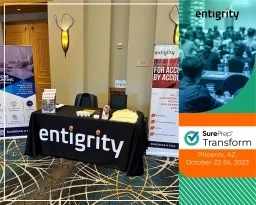- Home
- Blogs and Insights
- Top 10 Offshore Accounting Challenges for CPA Firms
Top 10 Offshore Accounting Challenges for CPA Firms
 Valay Parikh
Valay Parikh- May 20, 2024
- 10 mins read
- 1548 views

Offshore accounting has emerged as a prevalent practice in the accounting industry, allowing firms to expand their operations globally. It involves delegating certain tasks and functions to offshore locations, often in countries with lower labor costs. The rise of offshoring can be attributed to various factors, such as technological advancements, globalization, and the pursuit of cost efficiencies.
Understanding Offshoring for Accounting Firms
Offshore accounting refers to relocating specific accounting functions overseas. This strategic move offers several advantages for accounting firms. Firstly, it allows firms to tap into a global talent pool, accessing skilled professionals who can handle routine and time-consuming tasks. Additionally, Offshore accounting can lead to significant cost savings, as offshore locations often offer lower labor costs.
Accounting firms employ different offshoring models to suit their unique requirements. Some firms opt for captive centers to establish their physical presence offshore. Others outsource their accounting tasks to third-party service providers specializing in remotely delivering accounting services. Both models have pros and cons, depending on control, cost, and scalability.
Top Offshore Accounting Challenges:
Although offshoring has many advantages, accounting firms may encounter difficulties when trying to expand their operations with offshore accounting services.
1. Cultural and language barriers impacting offshoring effectiveness:
Accounting firms need to understand that there can be cultural and language differences with offshore teams. These differences can hinder your firm’s success and growth and are major offshore accounting challenges that accounting firms face.
When expanding operations offshore, accounting firms encounter cultural and language barriers that can affect the effectiveness of offshoring. Working with professionals from different cultural backgrounds requires understanding and adaptability.
Language barriers can cause miscommunication and misunderstandings. This can result in errors in accounting processes. It can also compromise the quality of work.
Solutions:
Accounting firms must foster a sense of teamwork and collaboration between onshore and offshore teams. Regular video conferences, team-building activities, and cultural exchange programs help bridge the geographical gap and promote a unified work environment.
Read our blog “HOW TO SUCCESSFULLY INTEGRATE ONSITE AND OFFSHORE TEAM” to leverage offshore accounting staff effectively in your firm.
2. Data security and privacy risks:
Accounting firms handle sensitive financial information, making data security and privacy crucial concerns. Offshoring for accounting firms introduces additional risks, as data may be transmitted across borders, exposing it to potential breaches. Maintaining consistent quality and service standards can pose a challenge when offshoring tasks.
Solutions:
Accounting firms must invest in robust cybersecurity measures, such as encryption, multi-factor authentication, and secure data storage systems, to mitigate the risk of data breaches and unauthorized access.
Certifications like SOC 2 Type II and compliances like GDPR ensure the data security of clients' data by demonstrating the company's commitment to robust internal controls and data protection practices. They must possess a few information security standards like ISO 27001:2013.
Before opting for the right offshore accounting solutions, ensure that the offshore partner you are choosing has had no data breaches. The team should monitor the network and proactively prevent any potential cyber threats.
3. Navigating time zone differences and communication challenges
Offshoring accounting often involves working with teams located in different time zones. This introduces communication challenges, such as finding overlapping working hours for real-time collaboration and timely responses to client inquiries. Accounting firms must develop effective strategies to bridge the time zone gap, ensuring seamless communication and minimizing delays.
Solutions:
Technological tools and platforms facilitate seamless communication and collaboration between onshore and offshore teams. Utilizing project management software, instant messaging apps, and virtual meeting solutions can foster real-time communication, file sharing, and task tracking.
Also, choose an offshore partner with a flexible approach to meeting team members’ changing needs and priorities. However, keep in mind that overlap hours should be based on necessity. If there will be 2 to 3 hours of overlap work for non-client-facing work, allow staff to leave early.
4. Talent Acquisition, Retention, and Training:
Finding and selecting offshore talent that aligns with the firm's requirements can be daunting. Another challenge occurs when offshore talent is onboarded. It will be tough for accounting firms to build and nurture effective cross-cultural teams.
Offshore accounting staff may require specialized training to familiarize themselves with the firm's processes, systems, and client expectations. Accounting firms should invest in comprehensive training programs that address these specific needs, ensuring offshore teams have the necessary skills and knowledge to deliver high-quality work.
Solutions:
Accounting firms must conduct thorough due diligence to identify professionals with the necessary skills and qualifications. This includes assessing language proficiency, cultural compatibility, accounting practices, and software expertise.
Encouraging collaboration, fostering open communication channels, and promoting cultural diversity and inclusion are critical components of creating a harmonious work environment to attract and retain accounting talent.
5. Managing Client Relationships and Expectations:
Expecting Level 1 staff members to handle Level 4 or 5 work sometimes becomes a challenge and hindrance for accounting firms in offshoring accounting. This further leads to skill gaps and errors in the final execution.
It is crucial for accounting firms to manage client relationships and expectations when incorporating offshoring into their business model.
Solutions:
Measuring the performance of offshore teams is essential for maintaining quality control. Accounting firms should establish performance metrics for offshored tasks, such as turnaround time, error rates, and client satisfaction ratings. Regular monitoring of these metrics enables proactive intervention and continuous improvement.
Better to form a blended team with a mix of onshore and offshore staff. It will help in getting better support for complex projects. Leverage new technologies and tools to streamline processes. It will further increase the efficiency of Level 1 staff.
Accounting firms should foster a culture of continuous improvement within their offshoring operations. Encouraging feedback, implementing regular process reviews, and providing opportunities for professional development can enhance the quality of offshored tasks over time.
6. Too much Chat/Skype:
On the one hand, a client demands their offshore team work 20 hours per week, but on the other hand, he wants them to spend 1 hour or so in daily meetings or Skype chats. This is a completely unreasonable demand as it can also negatively affect the firm’s efficiency and productivity.
Solutions:
The client should manage a timeframe for their offshore staff members. That timeframe must include specific time for work, chats, and virtual meetings. While meetings are understandable, that doesn’t mean investing a great deal of time in them only. So, having a proper schedule helps in managing this challenge.
7. Multiple Staff Reporting:
Multiple Staff Reporting is a significant challenge for accounting firms in offshoring. Coordinating a dispersed team becomes really arduous, and that's even more so when some members are located offshore.
A lack of clear hierarchy and reporting structure often creates confusion for offshore staff. With a properly designated structure, there might be conflicting instructions, which can make it difficult for tasks to be performed smoothly.
Solutions:
The Buddy System is the best solution for challenges that occur with multiple staff reporting. It is among the most inventive methods. In this, an offshore staff member is paired with either one or two onshore staff members. It ensures task clarity and a smooth work process.
8. Graveyard Shifting (Matching the US Hours):
Graveyard Shifting is about working lately at night, sometimes even from midnight to early morning. The shift is called graveyard as it coincides with the time when most of the people are asleep. The environment created then is quiet and still, like a graveyard.
Graveyard Shifting can also be challenging due to disrupted sleep schedules and less social interaction. It is not a big hurdle for unmarried employees if their family and loved ones understand and support the work schedule. However, working late at night or overnight becomes tough once an individual starts a family.
Solutions:
Firms must allow offshore staff flexibility with rotating shifts and foster a work culture that allows 3 to 4 hours of overlap for work schedules. Providing additional benefits or compensation can also be a beneficial move to mitigate the issue.
9. Difficult to Trust:
Usually, when a firm opts for offshoring accounting, it frequently makes them worry about many aspects, like the caliber of the work produced. This is the reason that many firms are still reluctant to offshore their tasks.
Solutions:
There are several strategies that help in building trust with your offshore partner. Firstly, ensure you and your offshore partner agree on a well-created project strategy and timetable. Timely hold periodic evolutions and communications so offshore partners swiftly handle any problems or worries.
10. Lack of Leadership:
Picture a typical workplace! There will be a manager who motivates team members and ensures tasks are completed on time and within deadlines. However, in the case of offshore teams, leadership is rarely present. There is no one monitoring the progress properly. It further leads to misunderstandings regarding what task is being completed and how it results.
Solutions:
Managing projects across different locations requires tailored project management techniques. Accounting firms can implement agile methodologies, establish clear project timelines and milestones, and assign dedicated project managers to ensure efficient coordination and successful project completion.
Apart from this, some offshore partners, like Entigrity, offer a solution by providing offshore success advisors. These advisors act as a reliable link between onshore and offshore teams and help bridge the gap between them. They also motivate team members, clarify their tasks, and ensure that the work is completed in a timely manner.
Conclusion
Although offshoring for accounting firms comes with some challenges, it also presents many advantages that you can’t ignore. Understanding these challenges and devising viable solutions will help CPA firms build trustworthy relationships with CPA partners.
Accounting firms must communicate the value proposition of offshoring to clients. This includes highlighting cost savings, access to a global talent pool, and the ability to focus on strategic initiatives rather than routine accounting tasks. Clients need to understand how offshoring for accounting firms can benefit them in terms of quality, efficiency, and overall business outcomes.
Having an offshore accounting team is still the best option if you are looking to efficiently scale the firm’s operations. Leveraging these challenges allows accounting firms to harness the full potential of offshoring to drive growth and success in an increasingly competitive global market.
Offshore Accounting FAQs:
1. What are the advantages of offshoring for accounting firms?
Ans: Offshoring offers accounting firms access to a global talent pool, cost efficiencies through lower labor costs, and the ability to focus on strategic initiatives rather than routine tasks.
2. How does offshoring impact client relationships and expectations?
Ans: Offshoring may raise concerns about data security, quality of work, and client communication. Accounting firms must address these concerns proactively, communicate the value of offshoring, and maintain quality control to manage client expectations effectively.
3. What are the key data security concerns associated with offshoring?
Ans: Key data security concerns associated with offshoring include data breaches, unauthorized access, and compliance with data protection regulations. Robust cybersecurity measures, thorough due diligence on offshore partners, and regulatory compliance ensure data security.
4. How can accounting firms effectively manage communication barriers in offshore operations?
Ans: Accounting firms can effectively manage communication barriers in offshore operations by fostering teamwork, leveraging technology for real-time communication, and implementing project management techniques for distributed teams.
5. What steps can be taken to ensure quality control and compliance in offshored tasks?
Ans: Accounting firms can ensure quality control and compliance in offshored tasks by implementing quality assurance processes, establishing performance metrics, and continuously improving processes. Clear communication channels, feedback mechanisms, and regular performance evaluations are vital in maintaining quality and compliance.
Entigrity™ is a reliable offshore staffing partner for 850+ accounting and CPA firms, 200+ CFOs & businesses across the US, Canada, and the UK. With a flexible and transparent model, the company enables firms of all sizes to acquire skilled accounting, bookkeeping, and tax preparation staff. As a pioneer in offshore accounting, Entigrity ensures precise alignment with the hiring needs of accounting firms, providing staff under your control and management and minimizing concerns about compliance, payroll taxes, overheads, or benefits. Trusted by 40+ of the top 200 US accounting firms, we specialize in supplying highly skilled personnel from India. We have 39 global offices across India. We are GDPR compliant, ISO 27001:2013, and SOC 2 Type II certified. We are now "Great Place to Work Certified™," "KPO Organization of the Year," and "Dream Companies to Work For" among accounting industries. Entigrity is also recognized as a platinum partner by the Institute of Management Accountants (IMA). The company is strategically partnered with Boomer, a BDO Alliance USA and Abacus Alliance member.
Valay Parikh
Co- Founder & COOWith more than a decade of experience, Valay serves as the Vice-President of Entigrity Remote Staffing. Valay leads the India-centric Operations for the company, guiding its strength to unprecedented scales, with his guidance and leadership. Valay is a qualified Chartered Accountant himself. Beginning with public practice, he has served as a consultant and adviser to many small and mid-size businesses. Later on, he went on and co-founded Entigrity with Shawn. Valay has been phenomenal in building India Operations, with his core focus being on identifying and developing Indian talent pool for the company. Utilizing his experience, he developed and built robust HR policies and framework, developed strong training methodologies, and help clients with Financial Reporting, Business Analytics and Business Intelligence, thus creating strong and efficient processes for the clients.



 +1-646-827-4348
+1-646-827-4348 +1-646-827-4348
+1-646-827-4348 +44-(0)20-3355-7340
+44-(0)20-3355-7340
























-1698666312.webp)


